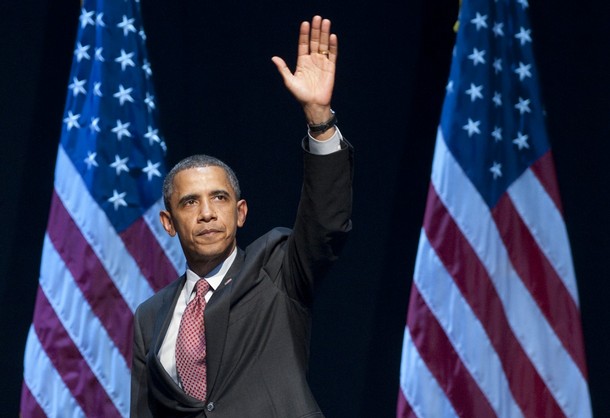
From Fred Hiatt, the Washington Post: America is not fated to lose its leadership position in the world. But President Obama and his Republican opposition, in different ways, are making that outcome more likely. . . .
More fundamentally, the doctrinaire Republican insistence on ever-shrinking government would sap the country’s ability to invest in the research, education, infrastructure and military strength that a great power needs. Rep. Eric Cantor’s our-way-or-the-highway abandonment of budget talks last week does more than set a bad example for leaders from Egypt to Iraq to Thailand, who we hope will learn that democracy requires give-and-take. If government is restricted to a smaller share of the economy than at any time in the past half-century, it will hasten American decline.
Obama, for his part, has spoken eloquently about U.S. leadership. “Whatever mistakes we have made, the plain fact is this: The United States of America has helped underwrite global security for more than six decades with the blood of our citizens and the strength of our arms,” he said as he accepted the Nobel Peace Prize in 2009. “We have borne this burden not because we seek to impose our will. We have done so out of enlightened self-interest — because we seek a better future for our children and grandchildren, and we believe that their lives will be better if others’ children and grandchildren can live in freedom and prosperity.”
He also has spoken eloquently about the need to enlist allies, which becomes only more important as new powers emerge.
Yet in Libya he has undermined NATO by refusing to let U.S. forces play a full part, putting caveats on U.S. involvement comparable to those set by our allies — to great U.S. irritation — in Afghanistan. Far from strengthening the historic alliance, this turns it into a collection of shifting coalitions of the willing. . . .
It takes spine, too, to persuade Congress to pay the cost of what Obama formerly understood as the “enlightened self-interest” of global leadership. Whether the United States continues to help keep the peace will depend less on India or Brazil’s emergence than on whether it can find leaders, as it always has before, with the conviction to make the case. (photo: Getty)
Image: getty%206%2027%2011%20Barack%20Obama.jpg
